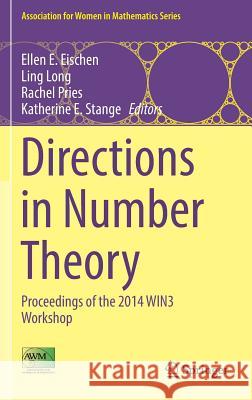Directions in Number Theory: Proceedings of the 2014 Win3 Workshop » książka
topmenu
Directions in Number Theory: Proceedings of the 2014 Win3 Workshop
ISBN-13: 9783319309743 / Angielski / Twarda / 2016 / 339 str.
Kategorie:
Kategorie BISAC:
Wydawca:
Springer
Seria wydawnicza:
Język:
Angielski
ISBN-13:
9783319309743
Rok wydania:
2016
Wydanie:
2016
Numer serii:
000776085
Ilość stron:
339
Waga:
0.67 kg
Wymiary:
23.39 x 15.6 x 2.06
Oprawa:
Twarda
Wolumenów:
01
Dodatkowe informacje:
Wydanie ilustrowane











